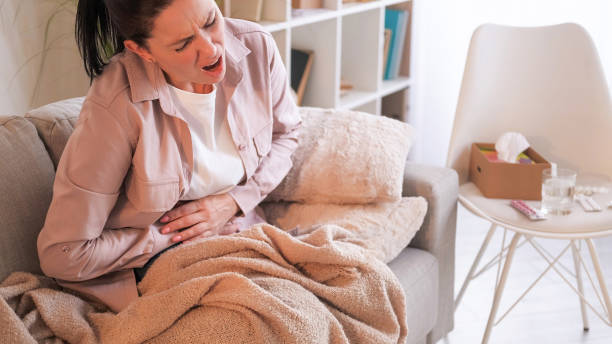Dysmenorrhea or period pain is the throbbing or aching cramps a woman feels in her lower abdomen before or during menstruation. This experience is different for everyone; some women do not experience this pain at all, and for some, it is mild, while for others, it can be very severe. The pain may also extend to the waist, lower back, inner thighs, or hips and may be accompanied by symptoms like bloating, diarrhoea, constipation, nausea, fatigue and vomiting.
Menstruation occurs when the uterus sheds its lining, so it is normal to feel some pain. However, this pain can range from mild to severe. But in most cases, the severe one is usually associated with some underlying conditions, such as pelvic inflammatory disease, uterine fibroid, adenomyosis, IUD and endometriosis.
Some factors that can increase your risk of experiencing dysmenorrhea include smoking, excess weight, depression, rigorous exercise, anxiety, stress, family history of painful periods, and not having been pregnant. It is said that period pains usually stop after childbirth.
Prevention of Dysmenorrhea
If you experience period pain, it is possible to ensure that your subsequent periods are either pain-free or less painful. First, find out if you have an underlying medical condition that causes dysmenorrhea and treat it. If the dysmenorrhea occurs naturally, the following things can help prevent or reduce the pain.
- Rest more, get enough sleep and reduce stress.
- Exercise, meditation, and yoga.
- Reduce your intake of sugar.
- Eat a balanced diet.
Treatment
Several methods can be used to manage and reduce period pains. If an underlying medical condition causes dysmenorrhea, the condition will be treated separately. But, if it isn’t caused by any medical condition, then it can be managed or reduced with these strategies:
- Heat therapy, such as a warm bath, heating pad, or hot water bottle.
- Mild exercise.
- Nonsteroidal anti-inflammatory drugs (NSAIDs) such as ibuprofen.
- Over-the-counter pain relievers.
- Transcutaneous electrical nerve stimulation (TENS).
- Acupuncture or acupressure.
- Having an orgasm, either alone or with a partner.



